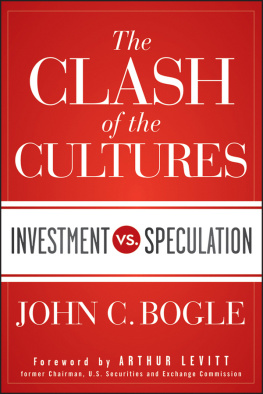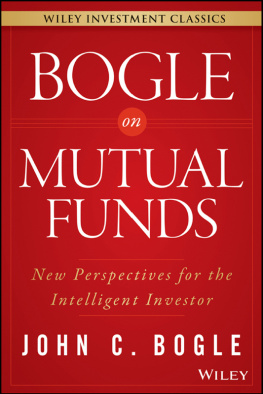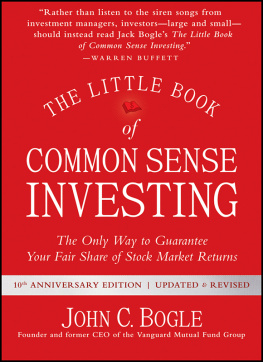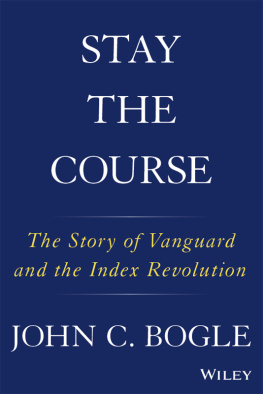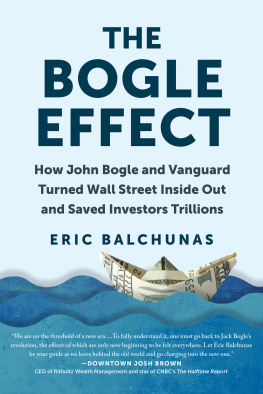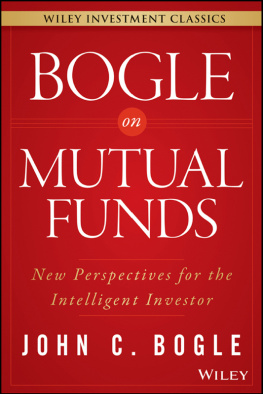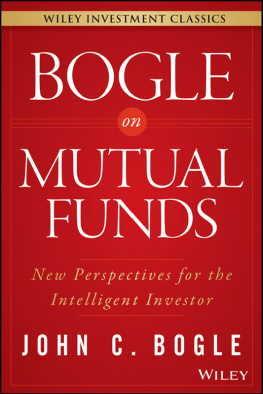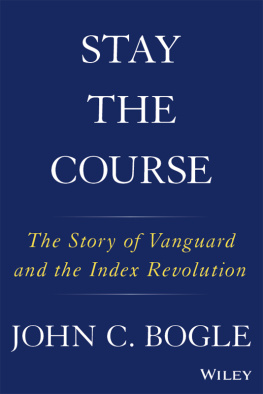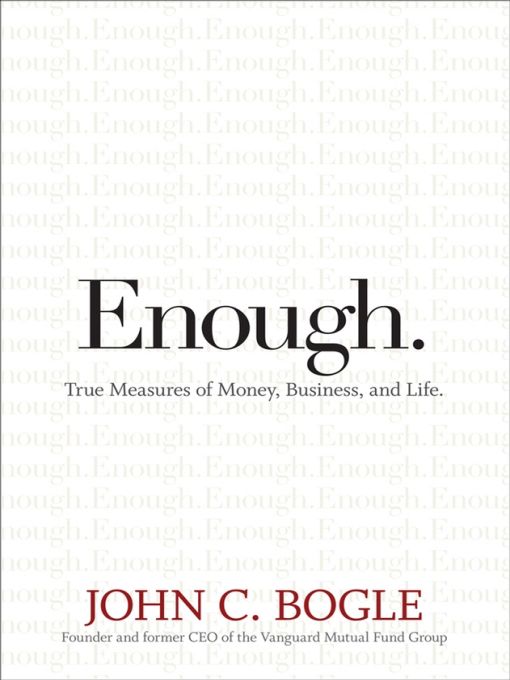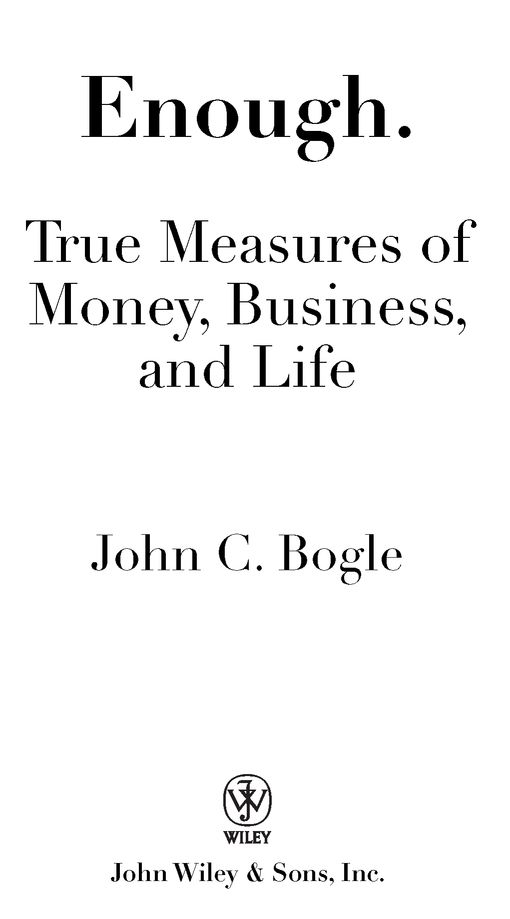Table of Contents
Praise for Enough.
Jack Bogles passionate cry of Enough. contains a thought-provoking litany of life lessons regarding our individual roles in commerce and society. Employing a seamless mix of personal anecdotes, hard evidence, and all-too-often-underrated subjective admonitions, Bogle challenges each of us to aspire to become better members of our families, our professions, and our communities. Rarely do so few pages provoke so much thought. Read this book.
David F. Swensen
Chief Investment Officer
Yale University
Enough. gives new meaning to the words commitment, accountability, and stewardship. Bogle writes with clarity and passion, and his standards make him a role model for all of us. Enough. is must reading for millions of U.S. investors disenchanted by todays culture of greed, accounting distortions, corporate malfeasance, and oversight failure.
Arthur Levitt
Former Chairman
U.S. Securities and Exchange Commission
Jack Bogles wonderful, thoughtful, helpful, and fun-filled little book inspired me to create my own title: Never Enough of Jack Bogle!
Peter L. Bernstein
Author of Capital Ideas Evolving and Against the Gods
Jack Bogle, the conscience of Wall Street, single-handedly founded the Vanguard Groupstill the nations only mutual mutual fund organizationand then grew it into the gentle giant that funds the retirements, educations, and philanthropic goals of millions of Americans. Now, in Enough., he distills his half-century of observations on the capital markets, and on life in general, into a few hundred entertaining pagesrequired reading for those concerned about their own future, their familys future, and the nations future.
William J. Bernstein
Author of A Splendid Exchange and The Four Pillars of Investing
This is an impressive message from a distinguished businessman. It will challenge all decision makers to consider the sufficiency and direction of their lives and work.What do we mean by Enough? Enough of what? Enough for what purpose? Feast here and reflect.
Robert F. Bruner
Dean and Charles C. Abbott Professor of Business
Administration, Darden Graduate School of Business
University of Virginia
What went wrong? What can, and should, go right? The great Jack Bogle has the answers. Enough. will leave you hungry for more.
James Grant
Editor of Grants Interest Rate Observer
From one battler to another: Thank you for putting in one little book the premise for an active, long life. A primer for those who will abjure complacency and just wanting more, whod rather focus on the joy of trying to move some ball downfield.
Ira Millstein
Senior Partner,Weil Gotshal & Manges LLP
The balances one must create in investing, in running a business, and in life more generally are simply and clearly stated in Jacks most recent book, Enough. Unfortunately there are not enough Jack Bogles around in todays world of instant gratification. Enough. should be must reading for business students and corporate board members.
David L. Sokol
Chairman, MidAmerican Energy Holdings Company
The Great Seduction
The people who created this country built a moral structure around money.The Puritan legacy inhibited luxury and self-indulgence. Benjamin Franklin spread a practical gospel that emphasized hard work, temperance, and frugality. Millions of parents, preachers, newspaper editors, and teachers expounded the message.The result was quite remarkable.
The United States has been an affluent nation since its founding. But the country was, by and large, not corrupted by wealth. For centuries, it remained industrious, ambitious, and frugal.
Over the past 30 years, much of that has been shredded. The social norms and institutions that encouraged frugality and spending what you earn have been undermined. The institutions that encourage debt and living for the moment have been strengthened.The countrys moral guardians are forever looking for decadence out of Hollywood and reality TV. But the most rampant decadence today is financial decadence, the trampling of decent norms about how to use and harness money.
DAVID BROOKS
THE NEW YORK TIMES
June 10, 2008
Introduction
At a party given by a billionaire on Shelter Island, Kurt Vonnegut informs his pal, Joseph Heller, that their host, a hedge fund manager, had made more money in a single day than Heller had earned from his wildly popular novel Catch-22 over its whole history. Heller responds,Yes, but I have something he will never have... enough.
Enough. I was stunned by the simple eloquence of that wordstunned for two reasons: first, because I have been given so much in my own life and, second, because Joseph Heller couldnt have been more accurate. For a critical element of our society, including many of the wealthiest and most powerful among us, there seems to be no limit today on what enough entails.
We live in wonderful and sad timeswonderful in that the blessings of democratic capitalism have never been more broadly distributed around the globe, sad in that the excesses of that same democratic capitalism have rarely been more on display. We see the excesses most starkly in the continuing crisis (that is not an extreme description) in our overleveraged, overly speculative banking and investment banking industries, and even in our two enormous government-sponsored (but publicly owned) mortgage lenders, Fannie Mae and Freddie Mac, to say nothing of the billion-dollar-plus annual paychecks that top hedge fund managers draw and in the obscene (there is no other word for it) compensation paid to the chief executive officers of our nations publicly held corporationsincluding failed CEOs, often even as they are being pushed out the door.
But the rampant greed that threatens to overwhelm our financial system and corporate world runs deeper than money. Not knowing what enough is subverts our professional values. It makes salespersons of those who should be fiduciaries of the investments entrusted to them. It turns a system that should be built on trust into one with counting as its foundation. Worse, this confusion about enough leads us astray in our larger lives. We chase the false rabbits of success; we too often bow down at the altar of the transitory and finally meaningless and fail to cherish what is beyond calculation, indeed eternal.
That message, I think, is what Joseph Heller captured in that powerful single word enoughnot only our worship of wealth and the growing corruption of our professional ethics but ultimately the subversion of our character and values. And so thats where I want to start, with what I know best: how my own life has shaped my character and values, and how my character and values have shaped my life. As you will see, Ive been given enough in countless ways.
Growing Up
Perhaps the best place to begin is with my heritage: heavily Scottish, which may be enough to explain my apparently legendary thriftiness. The Armstrongsancestors of my grandmother on my mothers sidecame to America from Scotland in the early 1700s to farm here (a wonderful reminder that nearly all of us are descendants of immigrants). Ive always thought of my great-grandfatherPhilander Banister Armstrongas my spiritual progenitor. He was an industry leader, but did his best to reform first the fire insurance industry (in an 1868 speech in St. Louis, he implored, Gentlemen, cut your costs), and then the life insurance industry. His spirited 1917 diatribe258 pages longwas entitled


